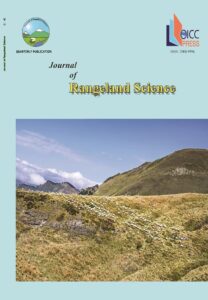Recognising the Value of Traditional Knowledge
Authors
Abstract
When I visited your beautiful country of Iran in 2018, one highlight for me was meeting two of your scholars who were both involved in CENESTA – the late Ghanimat Azhdari and her mentor, the late Taghi Farvar. Taghi had a remarkable & powerful presence. He influenced many around the world, including many of you who are here today. Ghanimat proudly described herself as the daughter of a pastoralist from southern Iran, something we shared as I too am the daughter of a pastoralist. They approached the world with a holistic lens, cognisant of the importance of socio-economic issues. They were both strong advocates for the collective rights of mobile Indigenous peoples. Their passion for Indigenous people’s knowledge and wisdom inspired the theme I wish to highlight today. The value of Indigenous or Traditional knowledge and Traditional Governance systems is starting to be recognised around the world. Today I will highlight a few projects in Australia, that indicate that how this is occurring in my country. The widespread and catastrophic fires of 2000-2019 in Australia, heightened our awareness of the value of the cultural burning practices of Aboriginal peoples. The 2000-2019 fires burnt over 77,000 square miles, which is about the area of Syria; 33 people died and approximately 1 billion animals. The need for different responses to fire was widely discussed.


